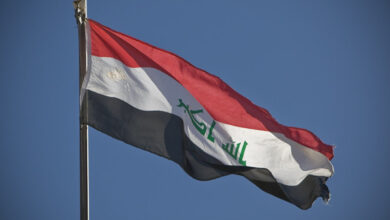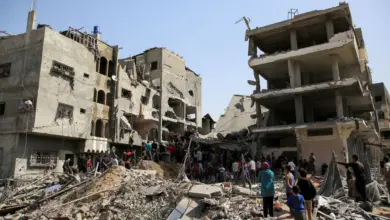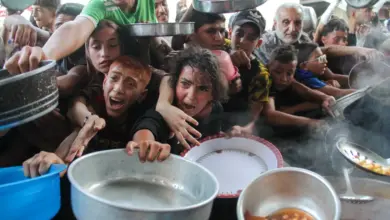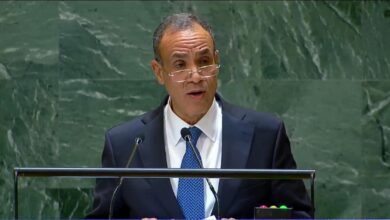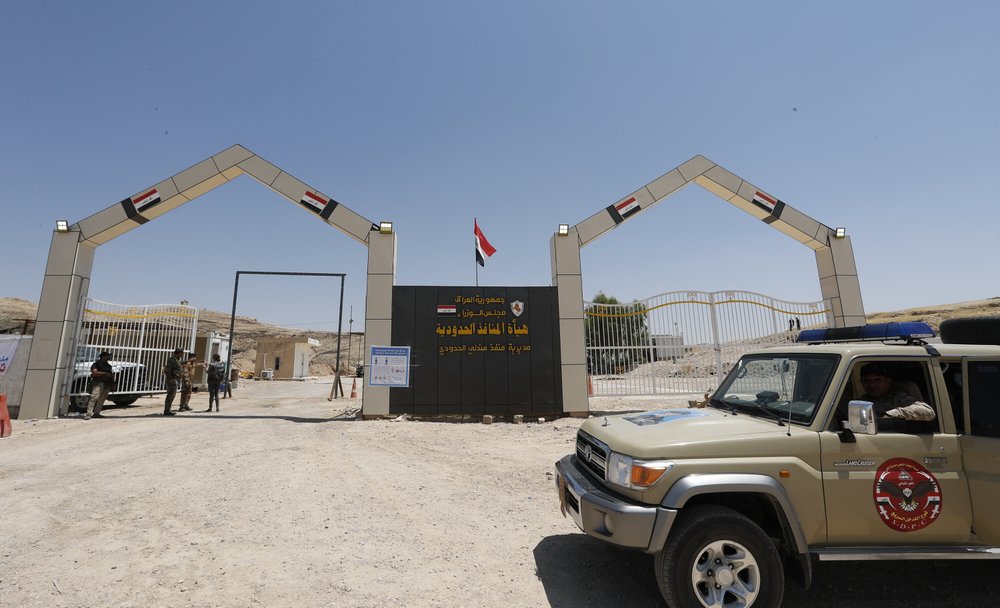
MANDALI, Iraq (AP) — Iraq’s prime minister took a first step Saturday to combat cross-border corruption that has long plagued the country’s frontiers as part of a reform plan to grapple with unprecedented financial shortfalls.
Mustafa al-Kadhimi launched a campaign to recover “hundreds of millions” of Iraqi dinars in import tax revenue lost to bribery in the northern province of Diyala. In the first phase, security forces from the Interior Ministry will supervise the work of border guards to ensure proper payment of tariffs at the Mandili border crossing with Iran, he told reporters.
“Today, military forces were sent and allowed to shoot anyone who violates customs, in order to protect the people’s money and to search for ‘ghosts’ who blackmail businessmen.” he said.
The scheme is expected to be repeated at other border points.
Local security and government officials said enforcement brings with it the risk of contending with powerful armed groups.
A Mandali border official with the rank of lieutenant colonel said “ghosts” referred to armed factions, some with links to groups within the state’s Popular Mobilization Forces, comprised of an array of militia groups, some with links to Iran. The officer spoke on condition of anonymity fearing retribution.
Hours before the prime minister’s arrival at the frontier, Iraqi security forces announced the start of the fourth phase of a military campaign to root out Islamic State group elements from Diyala province, according to a military statement. At least 15 IS hideouts were destroyed since the dawn operation was launched.
The launch of the border corruption campaign comes as Iraq’s government struggles to plug a widening budget deficit amid spiraling oil prices that has slashed expected state revenues, leaving the country with little liquidity to pay state salaries and finance a response to the coronavirus.
In June, the crude exporting state received US$2.68 billion in oil revenues, about half of what a draft 2020 budget projected.
Attempts at financial reform have been met with protests and rejection from parliament, which voted down proposals to cut public salaries, which represent a chunk of the government’s monthly expenditure.
The government plans to pay full salaries for the months of June and July by borrowing from reserves through state banks, but this is a short-term option, two Iraqi officials said. The officials spoke on condition of anonymity in line with regulations.
With strong opposition to wage cuts from political blocs in parliament, al-Kadhimi is considering measures that don’t require their approval, according two members of the government Crisis Cell, a high-level committee overseeing top economic issues. These include changing taxation methods and enforcing tariffs at customs. Iraq imports nearly all of its goods from neighboring Iran and Turkey.
“We are in crisis mode, we have a three-trillion [dinar] deficit every month,” said one official. “It’s not sustainable for the future.”
Improving customs collections across Iraq’s 21 border crossings had been on the reform agenda of previous Iraqi governments but officials have repeatedly said enforcement was the key obstacle.
Mandali crossing, recently re-opened after a virus-related closure, has fallen victim to armed groups in the past, said Omar al-Waeili, director of the border ports. Once they even confiscated prohibited items by force, he said. With stricter policing he expects the crossing to bring in around 250 million dinars per day.
The government alleges that corruption arises from certain border officers accepting bribes for charging lower tariffs, while others say they are intimidated by armed gangs with links to militia groups that are dominant in the area.
Some local officials say plans to introduce automated security technology at the crossing and clamp down on corrupt officials would introduce fresh obstacles.
PMF groups and some Iraqi security forces maintain security in Mandali. Two officials, one lieutenant colonel at the border and another in the government, said armed factions with militia links were involved.
“They give you a receipt of just 10 percent of what is paid, the rest will be theirs,” the officer said. He requested anonymity for fear of retribution. “If someone opposes them or wants to implement the law, they threaten them.”
Al-Kadhimi visited the headquarters of the PMF during his trip to Diyala.
“I ask for time and patience,” he said, in comments to reporters following his meetings.
____
Kullab reported from Baghdad.
Image: Iraqi security forces stand guard at the Iraq-Iran border crossing of Mandali in northern province of Diyala, Iraq, Saturday, July, 11, 2020. Al-Kadhimi launched a campaign in the northern province of Diyala to enforce the proper payment of taxes on imported goods and recover “hundreds of millions of dollars” in revenues lost to bribery and other illicit practices. Security forces from the Interior Ministry would supervise the work of border guards in the first step of the campaign in the Mandili border crossing, he told reporters. (Thaier al-Sudani/Pool Photo via AP)

